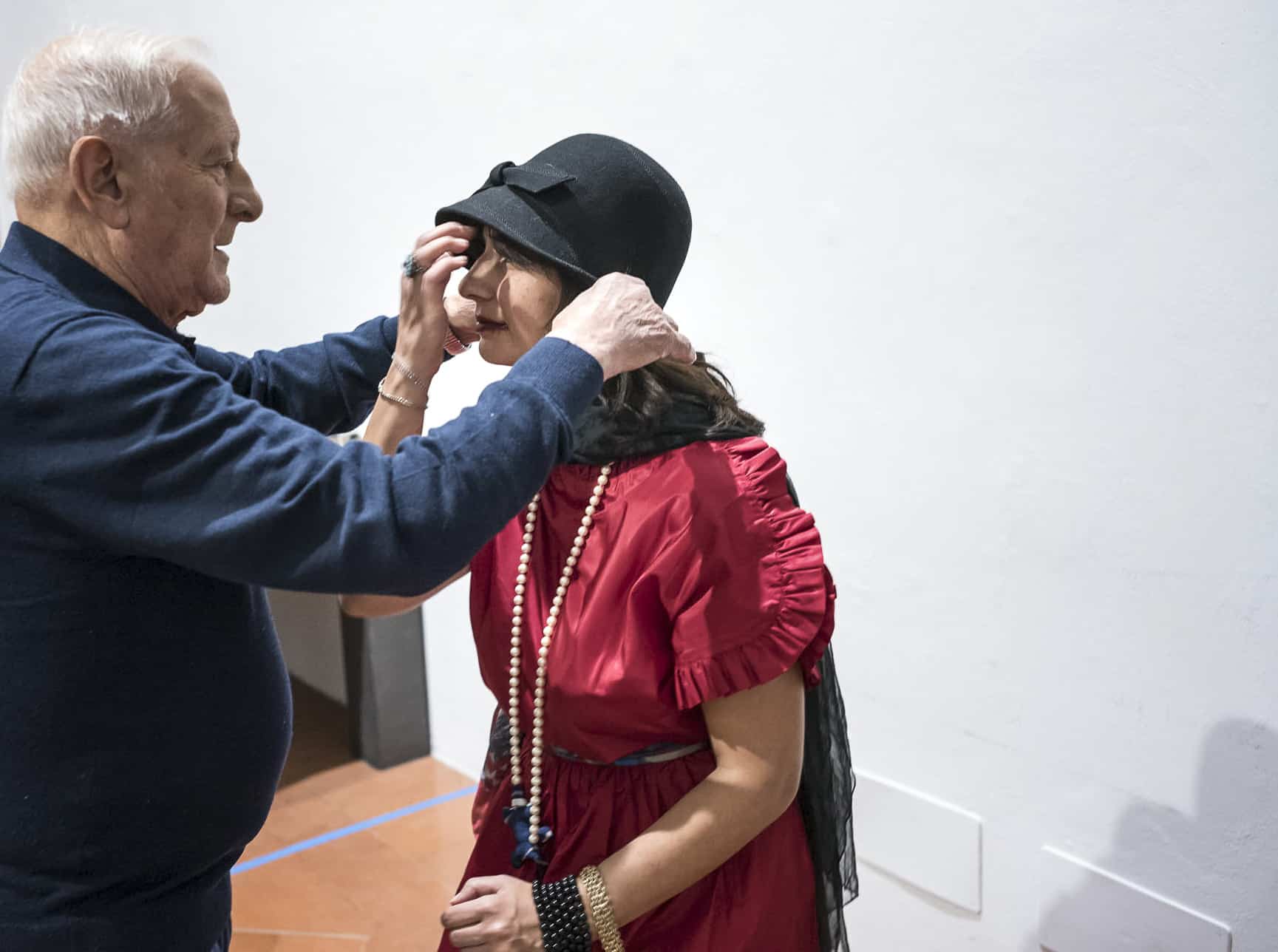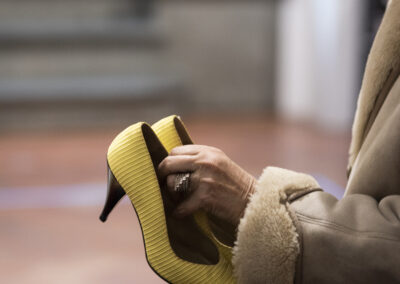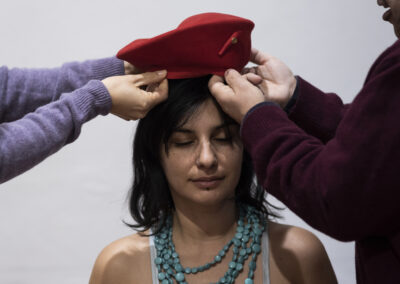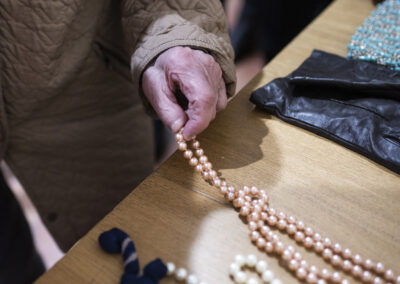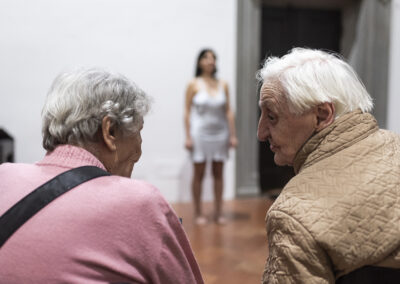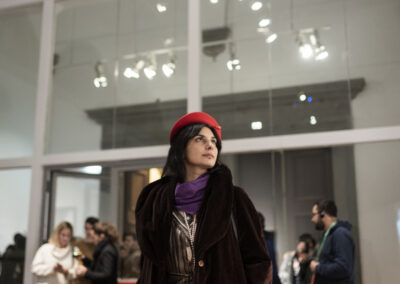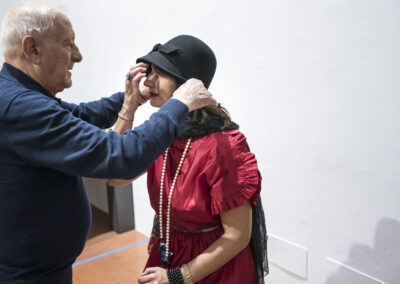With Many Voices is a project devoted to people with Alzheimer’s and their carers which the Fondazione Palazzo Strozzi launched in 2011. A cycle of three encounters devised and conducted by museum and geriatric educators is organised to tie in with each exhibition. A new voice was added to the project in the spring of 2016, that of an artist. On each occasion projects saw the light of day conjugating the exhibits with the artists’ own research, with the intention of bringing art to life and of fostering the relationship between the elderly and their carers. These experiences allowed us to explore the languages of art in an experimental fashion, involving each participant in depth and in an often unexpected way. In the occasion of the Marina Abramović exhibition the experience is devised with the artist Marina Arienzale.
“I thought about working on a very private event in my recent history. Put simply, this is the story. Last year (on 20 August) I got back home and the house was empty, my partner had left and taken everything. He didn’t leave a note, we didn’t speak. I haven’t seen him since. Looking for an explanation, I found a story on his blog and I thought it was about that day, in many ways.”
That reflection marked the beginning of the experiment that Marina Arienzale developed for A più voci – With Many Voices related to the exhibition Marina Abramović. The Cleaner.
The Marina Arienzale workshop shares two crucial points with the work of Marina Abramović: an indissoluble link between life and art, and an intense reflection on intrapersonal relations.
“I’d like to be found in the room in my petticoat, as though I were about to get ready to go out. I’d like to ask people to dress me so that I can meet them. There’ll be a table with clothes and objects.”
What we wear doesn’t just have an aesthetic side to it, it’s a way of presenting ourselves to the world, it means displaying our personality, it allows us to conceal or, on the contrary, to enhance parts of our body.
Many of the people who live with dementia don’t choose how to dress. At home, or in the homes where they live, they’re undressed, washed, dried and dressed by hands that they often don’t recognise and that they simply have to trust. Standing naked in front of a stranger becomes a daily necessity, and it changes your relationship with your body.
Marina Arienzale added: “the idea is to turn the notion of caring upside down, to put myself in a situation of extreme fragility (both physically and psychologically) and to ask for help in getting dressed and getting ready to go out. The thing that really fascinates me is combining a private dimension with a public dimension (meeting people) and sharing a part of myself with people who assimilate short term memories differently from me. In part, I feel as though they could preserve this thing or as though they could teach me to forget.”
There were four meetings and each one left different traces of itself: polaroid’s, digital photographs, two real-time transcriptions of what went on and a recording that was later turned into a written account.
They revealed complex and painful issues: the importance of choosing what to wear, how to say goodbye, how we respond in difficult situations that leave us speechless. On each occasion Marina was the recipient of care from the seniors and carers; on each occasion Marina came out of the room all dolled up, made up and fragrant, accompanied by the voice of Caterina Caselli from a tape recorder:
Insieme a te non ci sto più,
guardo le nuvole laggiù…
E quando andrò devi sorridermi se puoi,
non sarà facile ma sai,
si muore un po’ per poter vivere…
